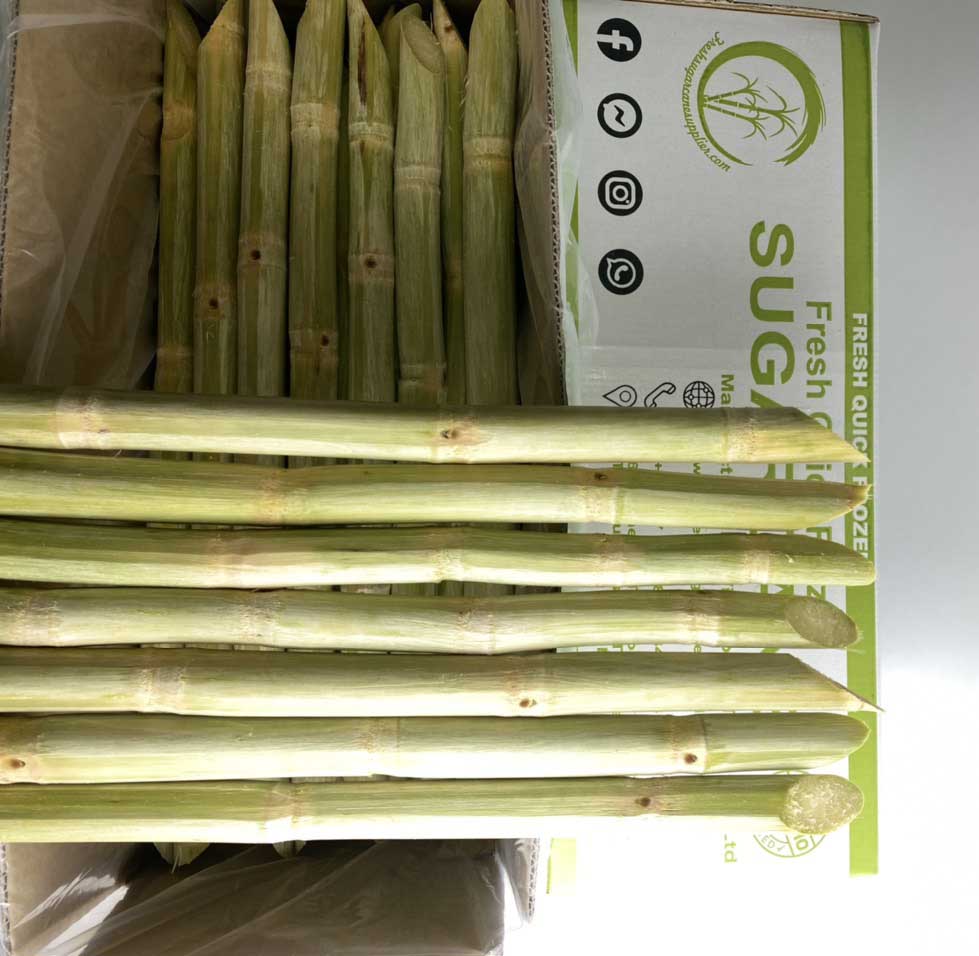Exploring Sugarcane Products: Versatile Uses and Benefits
The exploration of sugarcane products discloses a remarkable range of applications that extend well beyond the familiar world of sugar. As we check out the multifaceted contributions of sugarcane, one might wonder just how these varied uses can improve industries and way of lives in a rapidly evolving world.
Overview of Sugarcane
Although sugarcane is commonly connected mostly with sugar production, it is a functional crop with a rich history and numerous applications. Cultivated in subtropical and exotic regions, sugarcane grows in well-drained dirts and cozy climates, contributing dramatically to numerous economies worldwide. This seasonal turf, coming from the category Saccharum, can expand to elevations of approximately 4 meters, showcasing its durable nature.
Past its key function in sugar extraction, sugarcane functions as a vital resource for numerous by-products. The coarse deposit, called bagasse, is utilized for generating bioenergy and as a raw product for manufacturing paper and naturally degradable items. Additionally, molasses, a spin-off of sugar refining, is rich in nutrients and generally used in animal feed and fermentation procedures.
Sugarcane likewise plays a significant role in traditional medications and cultural methods in numerous areas, showing its significance past industrial use (sugarcane product). Moreover, with the boosting concentrate on lasting agricultural methods, sugarcane is being discovered for its capacity in biofuels and carbon capture, placing it as a principal in the transition towards renewable resource resources. Thus, the versatility of sugarcane expands far beyond the boundaries of sugar production
Sugarcane in Food Products


Beyond sugar, sugarcane is the resource of energy-rich products such as jaggery and panela, which are typical raw sugars utilized in lots of societies. These products not just sweeten foods but additionally convey dietary advantages and special flavors.
Sugarcane juice, a refreshing drink appreciated in several exotic areas, showcases the plant's flexibility. It is frequently eaten fresh or fermented right into alcoholic beverages like rum.
Furthermore, sugarcane fibers, understood as bagasse, are occasionally used to produce food product packaging products, highlighting the ecological advantages of sugarcane handling. Generally, sugarcane's contribution to foodstuff is diverse, boosting flavors, giving nutritional worth, and playing a substantial function in cooking customs around the globe.
Industrial Applications of Sugarcane
In different sectors, the versatility of sugarcane extends much past its cooking applications. Sugarcane functions as an essential basic material in the production of biofuels, especially ethanol, which is significantly made use of as a renewable resource resource. This biofuel is derived via fermentation and purification procedures, providing a sustainable option to nonrenewable fuel sources and contributing to a reduction in greenhouse gas discharges.

Moreover, the sugarcane sector has discovered applications in pharmaceuticals, where its components are made use of in the solution of numerous medical items. The natural substances removed from sugarcane show antioxidant and antimicrobial properties, enhancing the efficiency of particular drugs.
Last but not least, sugarcane is indispensable to the production of a series of chemicals, including glycerol and organic acids, which are important for various commercial procedures. These applications highlight sugarcane's considerable duty in promoting industrial sustainability and technology.
Ecological Benefits of Sugarcane
The multifaceted applications of sugarcane not only enhance commercial processes but additionally add considerably to ecological sustainability. As a renewable energy, sugarcane cultivation plays an essential role in carbon sequestration, absorbing significant amounts of co2 from the environment. This process helps minimize environment change by lowering greenhouse gas concentrations.
In addition, sugarcane results, such as bagasse and molasses, provide environmentally friendly choices to browse around this site traditional materials. Bagasse, the coarse residue after juice removal, can be utilized as a biomass gas, reducing reliance on nonrenewable fuel sources and promoting cleaner power resources. Additionally, molasses can be changed into bioethanol, additionally supporting sustainable energy efforts.
Sugarcane farming also promotes biodiversity and dirt health and wellness. Sustainable farming practices, such as intercropping and crop turning, enhance dirt fertility and lower erosion. In addition, the crop's deep root system help in water retention, thus supporting regional ecosystems and enhancing strength against drought.
Wellness Advantages of Sugarcane
Rich in all-natural sugars and vital nutrients, sugarcane offers various health and wellness benefits that make it a useful enhancement to a well balanced diet regimen. Its high fiber content aids in digestion, promoting gut health and preventing irregular bowel movements. Additionally, sugarcane is a source of anti-oxidants, which combat oxidative stress and anxiety and might lower the threat of persistent diseases.
Additionally, sugarcane juice is known for its hydrating buildings, making it a superb beverage option, particularly in hot climates. The all-natural sugars existing in sugarcane offer a quick energy increase, valuable for professional athletes and those taken part in physical activities. It also contains moved here essential nutrients, such as vitamin C, magnesium, potassium, and calcium, which contribute to total health.
Research studies suggest that sugarcane might assist manage blood sugar level degrees, making it a more suitable sugar for people with diabetes when eaten in small amounts. Its anti-inflammatory properties can sustain liver health and help in detoxification.
Final Thought
In conclusion, sugarcane emerges as an extremely functional crop with considerable contributions to various markets. The spin-offs of sugarcane, such as bagasse and molasses, assist in green techniques, while its health benefits boost general well-being.
Although sugarcane is often associated primarily with sugar manufacturing, it is a functional plant with an abundant history and various applications.Past its key role in sugar extraction, sugarcane serves as a crucial resource for numerous by-products. Mainly known for creating sugar, sugarcane is changed right into granulated sugar, brown sugar, and molasses, each serving unique culinary functions.Rich in crucial nutrients and natural sugars, sugarcane provides numerous wellness advantages that make it imp source a useful enhancement to a balanced diet. The natural sugars existing in sugarcane offer a fast power boost, helpful for professional athletes and those engaged in physical activities.